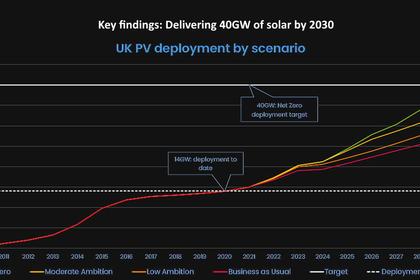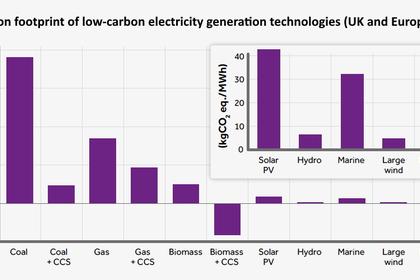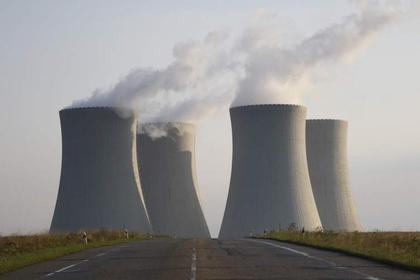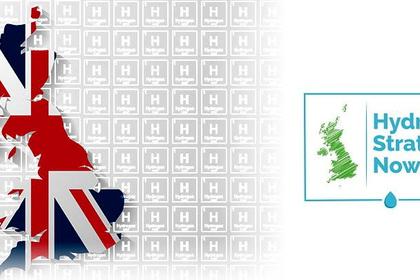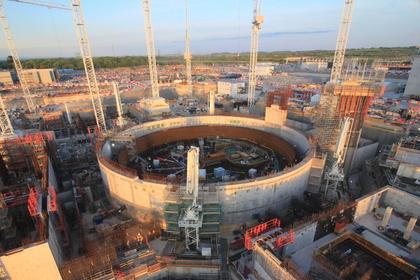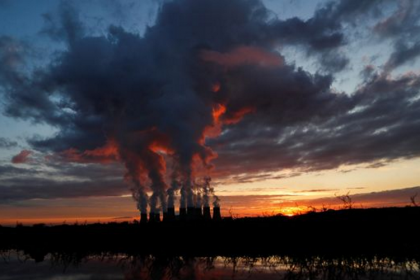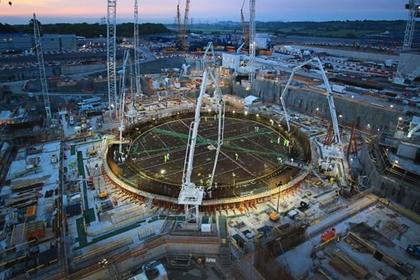
BRITAIN'S ZERO NUCLEAR FUEL

N - 29 June 2021 - UK National Nuclear Laboratory (NNL) has released a document, “Fuelling Net Zero: Advanced Nuclear Fuel Cycle Roadmaps for a Clean Energy Future”. NNL notes that, at the end of 2020, the Government Ten Point Plan and Energy White Paper identified “a key role for large, small and advanced nuclear within the UK’s evolving clean energy landscape”. It says, “To uphold this commitment and support the UK’s net zero transition, we must strategically elevate these technologies to realise their full potential.”
The 58-page report builds on work through the Advanced Fuel Cycle Programme (AFCP), led by the Department for Business, Energy and Industrial Strategy (BEIS) and NNL. It outlines future research, development and demonstration (RD&D) technology roadmaps for a range of nuclear fission scenarios. Gareth Headdock, Director of NNL’s Science and Technology & Government Programmes, said in his Foreword to the report: “With the UK already at the forefront of advanced fuel cycle innovation, the time has never been better to maximise these benefits through the expansion of capability and capacity. Now is our opportunity to plan for and secure a sustainable future.”
As part of the BEIS Energy Innovation Programme (EIP), the AFCP is delivering advanced fuel cycle science and technology to contribute to the UK’s clean energy commitment. To this end, AFCP has developed research, development and demonstration (RD&D) technology roadmaps, which aim to aid future thinking and investment planning of policy makers and industry over the coming years.
The focus is on key areas related to the scope of AFCP covering two fuel cycle components: fuel manufacture and used (irradiated) fuel management. Key enablers are identified in each of the roadmaps. Government support can be characterised by three broad areas: policy, infrastructure and international. The fuel cycle includes elements regarded as national strategic capabilities (related to security and non-proliferation aspects) and will require Government support to maintain UK capability; in addition, due to the long lead times and policy uncertainty, near-term industry investment is unlikely in some areas. Government support to international partnering and access to capabilities is also critical.
NNL says: “Given the right focus on developing capability and capacity, advanced fuels and fuel cycles can deliver significant economic benefit and support a sustainable future in the UK. Maturing key technology areas is crucial to this aim.” The roadmaps set out a pathway to support decision makers, within Government and industry, as they continue to develop plans for the future of nuclear in delivering net zero emissions by 2050 – and beyond — in the UK.
NNL says the UK has set a world-leading net zero greenhouse gas emissions commitment and the nuclear fuel cycle is crucial to the role of nuclear technology in decarbonising the future energy system. Fuel cycle RD&D is vital to ensure the technology and knowhow are available when required. Over the past five years, through Government investment the UK has started to rebuild capability across the fuel cycle as recommended by the Nuclear Innovation and Research Advisory Board (NIRAB). However nuclear energy is a long-term commitment and a continued strategic focus on fuel cycle RD&D will be required to enable the UK to meet future nuclear energy deployment ambitions.
In 2016, NIRAB recommended to Government to invest in future fuel cycle capability to ensure it could deliver on the ambitions set out in its Nuclear Industrial Strategy (NIS). Subsequently, there has been public investment in future fuel cycle R&D focused on 11 specific advanced fuel cycle project areas spanning advanced fuels and advanced recycle. “AFCP has reinvigorated the sector and is building capability,” NNL says.
Roadmapping approaches are now widely used at company, sector and national levels to align R&D with goals and strategy. A roadmap sets a pathway from current capability towards a future vision and identifies key opportunity areas. It allows a course to be plotted through the development of capability and technology through to exploitation of applications in the opportunity areas aligned to market trends and drivers. Roadmapping can support innovation and build consensus, within industry and policy making, on priorities and actions required to move forward. AFCP has undertaken technology roadmapping as part of its strategic delivery.
The AFCP roadmaps are each structured around four themes: trends and drivers, opportunity/application areas, technologies and capabilities, and enablers. Advanced fuels roadmaps include:
- Advanced technology fuels (ATF);
- Coated particle fuels (CPF); and
- Fast reactor fuels and fuel cycle.
Sustainable advanced fuel cycle roadmaps include:
- Advanced recycle of LWR fuel to produce future fuels;
- Advanced recycle technology of ATF to produce future fuels; and
- Pyrochemical (molten salt) recycle technology to produce future fuels.
NNL says these roadmaps “represent a view of how a programme or programmes could evolve to meet the UK’s clean energy ambitions”. They are not intended to be detailed project plans. “These roadmaps should be considered live documents which evolve as trends and drivers evolve over time. The roadmaps demonstrate a pathway to realising UK economic opportunities, which are potentially significant, maintaining UK indigenous capabilities and securing a path towards a sustainable fuel cycle future for the nuclear sector and nation.”
-----
Earlier:
